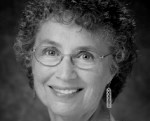By Sondra L Shapiro
Tears with my morning coffee. That’s not the best way to start the day. Yet, that’s how it began when I turned on the news and saw one of the nation’s most beloved actors, Mickey Rooney, 91, pouring out his heart to lawmakers about the abuse that made him feel powerless against supposed loved ones.
A lock on his fridge, $400,000 stolen, his passport taken — these are just some of the atrocities Rooney has endured.
“I felt trapped, scared, used and frustrated,” Rooney told a special Senate committee considering legislation to curb abuse of seniors. “But above all, when a man feels helpless, it’s terrible.”
That sense of helplessness is a condition that begins and ends the day for hundreds of thousands of elderly nationwide, in what is being referred to as the “silent pandemic.”
“I was told to shut up and be quiet: you don’t know what you’re talking about.” said Rooney.
 Such cruelty toward anyone, let alone an elderly person, is beyond comprehension. Yet, according to a new Government Accountability Office (GAO) study, 32 states reported 378,000 individuals suffered elder abuse or neglect last year. Massachusetts had 20,000 of those cases — with an average of 54 new reports coming in everyday.
Such cruelty toward anyone, let alone an elderly person, is beyond comprehension. Yet, according to a new Government Accountability Office (GAO) study, 32 states reported 378,000 individuals suffered elder abuse or neglect last year. Massachusetts had 20,000 of those cases — with an average of 54 new reports coming in everyday.
According to Mass Home Care, for every one case of abuse, 24 go unreported because victims are afraid, embarrassed and ashamed.
So it took courage for Rooney, a national figure, to step forward. “For years I suffered silently, unable to muster the courage to seek the help I needed,” Rooney said.
His experience proves that elder abuse happens to people from all walks of life. “If elder abuse happened to me, Mickey Rooney, it can happen to anyone,” he said during his Senate testimony.
Various factors appear to place older adults at greater risk: Physical and cognitive impairments, mental problems and low social support.
According to the GAO report, relatives and friends are responsible for the brunt of mistreatment. By definition, abuse can be physical, sexual, emotional, financial or neglect by a caregiver. It was Rooney’s stepson, Chris Aber, who purportedly withheld food and medicine and meddled in his personal finances.
Rooney obtained a restraining order from a judge in Los Angeles to keep Aber, away from him until an April 5 court hearing.
The GOA report found that resources for protective services are not keeping pace with the increasing caseload and complexity of each report. Although the Older Americans Act of 1965 has called attention to the importance of federal leadership in the elder justice area, it has not been a national policy priority. The Federal Administration on Aging (AoA) is supposed to provide that leadership, but has done very little.
The GAO report advises:
• Health and Human Services, which oversees AoA, determine the feasibility of providing guidance to state-level adult protective services.
•The attorney general facilitate the development and implementation of a state/federal data system. •Congress consider requiring HHS to conduct a periodic study to estimate the extent of elder abuse.
What it all comes down to is that something needs to be done on behalf of our nation’s most vulnerable citizens.
According to the GAO report, bad economic conditions has forced most states to level fund or cut funding for adult protective services (APS).
Here in the Bay State, a law protecting older people has been on the books for 27 years. It requires certain “mandated reporters,” such as doctors, nurses, police, firefighters, directors of home health agencies and home care agencies to file a report if they have “reasonable cause to believe” that an elder has been abused or neglected. But anyone can make an abuse report.
If an investigation confirms abuse or neglect, the elder is offered an array of support services. In cases of serious abuse, a report to the district attorney is made for possible prosecution.
A lack of funding has forced protective agencies here to “triage” some abuse reports, leaving them only partially investigated. Mass Home Care claims child abuse and domestic violence programs are funded 31 times higher than protective care for the elderly.
Statewide, advocates are seeking an appropriation of $17.2 million — slightly above the 2010 appropriation level of $16.7 million that was available before $1.45 million was cut back from the appropriation last summer.
Recent federal and state attention to this issue should instill in local lawmakers an urgency to appropriately fund adult protective services at levels that can make a difference. Nationwide, the publicity should encourage victims of abuse, who have been too afraid or ashamed, to come forward. Take it from beloved public figure, who risked so much by appearing publically. “Please, for yourself, end the cycle of abuse and do not allow yourself to be silenced any longer,” Rooney said.
“You are not alone and you have nothing to be ashamed of. You deserve better. You deserve the right to control your life …”
During a recent Senate hearing, Sen. Richard Blumenthal D-Conn, said elder abuse is a “hidden scourge in our society. … But these are crimes, and they should be reported. It is unacceptable in our society that we allow so many elders to be victims ….”
How could such cruelty toward the vulnerable not bring tears to our eyes?
Sondra Shapiro is the executive editor of the Fifty Plus Advocate. Contact her at sshapiro.fiftyplusadvocate@verizon.net or read more at fiftyplusadvocate.com.









